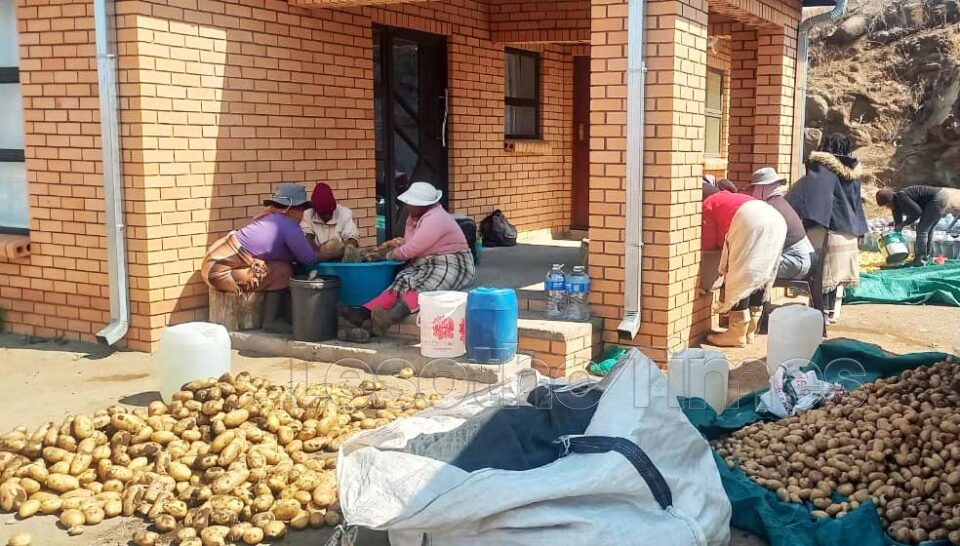EACH week in Sekokong, high in the mountains of Mokhotlong, farmers gather to harvest and package potatoes with a mix of pride and determination.
For them, the harvest represents more than food—it is a symbol of resilience, economic empowerment, and the promise of a better future.
Only a few years ago, these farmers were producing potatoes on a small scale, largely for household consumption.
In 2023, they approached the Lesotho Highlands Development Authority (LHDA), implementing agency of Phase II of the Lesotho Highlands Water Project (LHWP), with a bold idea: to expand production beyond subsistence and build a commercial enterprise.
For the LHDA, which is mandated to create value and promote sustainable livelihoods in communities affected by LHWP, this partnership offered an opportunity to demonstrate how agriculture can transform lives.
Many households in the Project area still depend on subsistence farming and natural resource harvesting, but climate change, poor land management, and financial hardship are threatening these traditional livelihoods.
A new model for livelihoods
To address these challenges, the LHWP’s Integrated Catchment Management Strategy and Livelihood Restoration Framework emphasize alternative, market-oriented income streams. Central to these strategies is promoting agriculture not merely as a survival tool, but as a business.
The Sekokong Potato Association, a group of six farmers, became one of the first to put this model into action. In the 2023/24 season, they partnered with LHDA in a share cropping arrangement: LHDA supplied seed and fertilizer, while the farmers managed the fields. Despite severe drought, the effort generated sales of M100,000.
Encouraged, the group continued into the 2024/25 season, this time assuming greater responsibility. They managed all farm operations and invested in inputs, while LHDA limited its support to seed, monitoring and supervision and market linkages. The results were impressive: 39.6 acres of potatoes planted, with favourable weather conditions leading to high yields. By mid-2025, more than 2,360 bags had been sold to retailers in Mokhotlong and Botha-Bothe, as well as to LHWP contractors and local diamond mines.
Farmers as entrepreneurs
For farmers like Mrs. Bokang Lebetla, the initiative has been life changing. “With the money from potato sales, we have purchased farm implements such as cultivators and grain wagons, and we intend to buy tractors,” she explained. Beyond improving household incomes—enabling families to cover daily needs and school fees—the project has also fuelled reinvestment in farming operations.
The impact extends to the wider community. Seasonal jobs in harvesting, weeding, cleaning, and packaging provide much-needed employment. The success has even shifted mindsets among youth. “We are building a legacy for our children,” said Mrs. ‘Mathabo Mahomo, another member. “Some who were sceptical now see potato farming as a viable business. Even our neighbours are joining us, including our area chief, who will plant with us in the next season.”
Sustainability and growth
Recognizing the need for long-term soil health, the farmers have adopted crop rotation. Over 10 acres of former potato fields were converted to maize, yielding seven tons in the current season. This maize supplement household diets and will be marketed in the next season.
Behind the success is a web of collaboration. The Ministry of Agriculture’s extension services, NGOs, local leadership, and community knowledge all contribute, while LHDA provides technical guidance and seed inputs. Together, they are building a model for sustainable agriculture in Project affected communities.
A harvest of hope
The Sekokong potato production story illustrates how targeted investment, local initiative, and strong partnerships can transform subsistence farming into a viable business. What began as a small community venture is now reshaping livelihoods, creating jobs, and inspiring the next generation to see agriculture not as a last resort, but as a path to prosperity.

